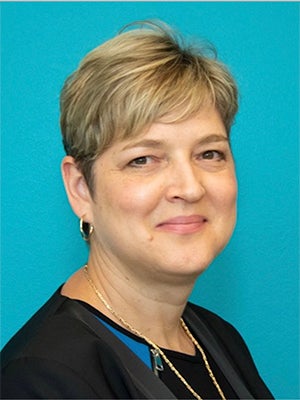
Lynn Mellor’s advanced quantitative education prepared her for a career in research that’s helping make a difference in student learning across Texas. Mellor earned her Ph.D. from the Department of Educational Psychology of the College of Education at the University of Texas in 1995, focusing on psychometrics. Currently, she is a principal researcher at the American Institutes for Research, where she is the Deputy Director for the Regional Educational Laboratory Southwest.
Using Her Research Post-Graduation
Of the training and research she received from the educational psychology department, she says her ability to understand and analyze a research problem has been the most essential. Additionally, an area that is becoming more important for her work is the ability to translate research into policy change or changes in practice.
“It’s important to know how to pick apart and understand research questions,” says Mellor. “Analyzing what data are needed to get answers and how you can translate those results into useful information that informs policy and practice are critical skills.”
Accomplishments in Education
Mellor has worked with various companies and government agencies including ACT, the Texas Education Agency, and the National Center for Educational Accountability at the University of Texas at Austin. Mellor is currently the principal investigator for the statewide evaluation of House Bill 5: Foundation High School in Texas, where she provides hands-on management, direction of research activities, and supervision of staff work. In partnership with the Texas Education Agency, Mellor recently won a Partnership Grant from the Department of Education’s Institutes of Education Sciences. This $3 million grant will be applied over the next five years to study Texas’ new high school graduation requirements of House Bill 5.
During her tenure at ACT, she led a five-year study funded by the Houston Endowment to understand the connection between teacher effectiveness in the classroom and teacher preparation programs within the University of Texas system. By using a mixed method, quasi-experimental research approach with site visits to school districts, teacher preparation programs, and the use of hierarchical linear modeling, the study analyzed the connection between student performance in the classroom with new teachers from these programs.
Working Beyond the Education Field
Mellor says her quantitative education helped her gain multiple types of positions, even outside the field of education. She worked at a pharmaceutical manufacturing company for five years. While there, Mellor assessed how patients take prescriptions, how compliant they are, and the deciding factors for which prescriptions can be taken together.
If She Went Back to School
Mellor says she would like to gain more knowledge about some of the analytic methods that were just being introduced into education research and testing while she was in graduate school, such as machine learning.
“I would love to know how those methods are being applied today and what are the latest and greatest methods being taught now.”
Advice to Current and Future Students
After all of her experience in the field of educational psychology, Mellor advises students to “find a way to make your work relevant for the field by creating an impact that matters and finding ways for the work to lead to change.”

